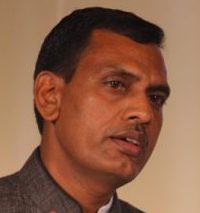Is the Rashtriya Swayamsevak Sangh (RSS) genuinely looking for a way to free society from the scourge of caste? Or is it just making politically correct moves? RSS chief Mohan Bhagwat has described the caste-Varna system as outdated and irrelevant and has voiced the need for discarding it. The statement has drawn varied responses.
Bhagwat not first RSS supremo to comment on caste
Many are asking whether the Sangh will walk the talk. They remind us that about four decades ago, speaking at the Vasant Vyakhyanmala in Pune, then Sarsanghchalak Bala Saheb Deoras had termed untouchability a sin. Later, the Sangh included “samrasta” (harmony) in its agenda and constituted a Rashtriya Samrasta Manch. But what did it achieve? Did the RSS cadres accept the formulation of their leader? Did they work to rid India of the sin of untouchability? Did the RSS launch any big campaign on the issue? The answer to all these questions is a “no”. Deoras said something, it was given wide publicity and that was that. For the Sangh, untouchability ceased to exist!
Hollow words
Since the BJP’s ascent to power at the Centre in 2014, the RSS has been busy with social engineering aimed at securing electoral victories. It wants to prove that it is treading the right and just path. If one reads Mohan Bhagwat’s book Yashaswi Bharat, it would seem as if the Sangh has transformed itself and is embracing progressive values. But that is far from the truth. The Sangh just wants to be seen as progressive, which is why it also seems to be supporting reservations and even the cause of transgender persons. Its cadres, however, are neither supporters of reservations nor sensitive to the transgender community. The Sangh has always been adept at projecting itself in a good light.

Only changing skin
Even a cursory study of the Sangh’s discourse on caste would reveal that since its inception, it has been an ardent supporter of caste. Guru Golwalkar, the second sarsanghchalak of the RSS, had termed caste as a special characteristic of the Hindu religion. Brahmins and Banias have always been dominating the national leadership of the Sangh and form a majority of its “pracharaks”. The Sangh never launched any campaign or movement to eliminate caste or the caste system. It never openly supported the agenda for annihilation of caste. In fact, from time to time it kept listing the advantages of caste. And that is the reason the Sangh suddenly talking of ending the caste and Varna system has taken people by surprise.
There are those who are trying to portray the Sangh as changing, becoming inclusive, supporting Dalits and Adivasis and is keen to open channels of communication with the Dalit-OBC Muslims. They say it is also embracing Ambedkar. But is this actually happening? Or is it eyewash?
It is being said that in the wake of the growing popular resentment against the caste system, the RSS is making a course correction. But is the Sangh actually changing, or just shedding skin while retaining its poisonous fangs? It is the latter, and will remain so.
Sangh’s game plan
The forces of social justice are demanding a caste census to counter communal politics. Voices demanding caste-based representation in different institutions are also getting stronger. Amid all this, the RSS suddenly developing a great interest in dismantling the caste system is suspicious. Is it an attempt at a counter-revolution? Casteless society was never the stuff the RSS dreamt of. Hence Bhagwat’s statement cannot be anything except the part of a well-thought-out strategy. It is aimed at insulating Hindutva politics from the divisive impact of caste-based mobilizations.
The Dalits, OBCs and Adivasis have taken Bhagwat’s statement with a pinch of salt. It is even sticking in the throat of the RSS volunteers. In any case, without rejection of the scriptures that sanctify the caste system, any talk of eliminating caste would sound hollow. And the RSS chief hasn’t said a word about the scriptures. Caste cannot be annihilated without annihilating these scriptures, and certainly not by just parroting slogans.
(Translated from the original Hindi by Amrish Herdenia)
Forward Press also publishes books on Bahujan issues. Forward Press Books sheds light on the widespread problems as well as the finer aspects of Bahujan (Dalit, OBC, Adivasi, Nomadic, Pasmanda) society, culture, literature and politics. Contact us for a list of FP Books’ titles and to order. Mobile: +917827427311, Email: info@forwardmagazine.in)





